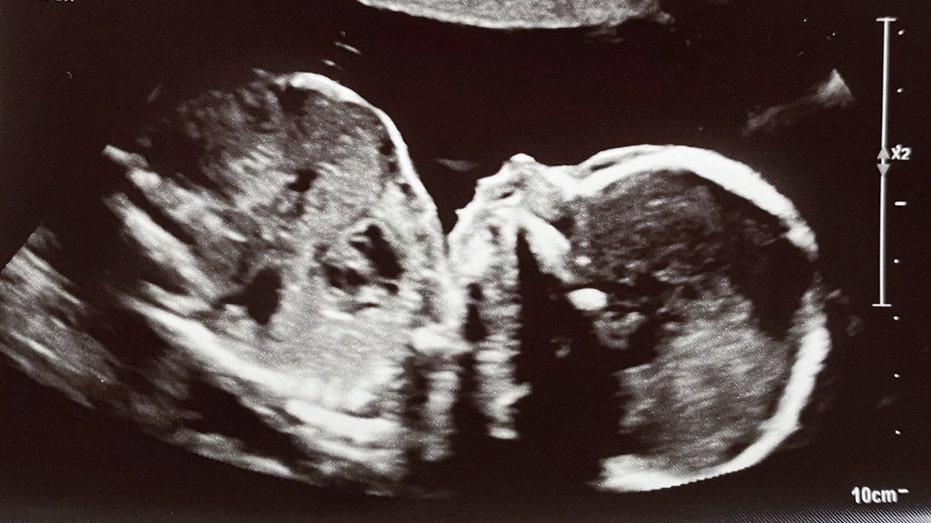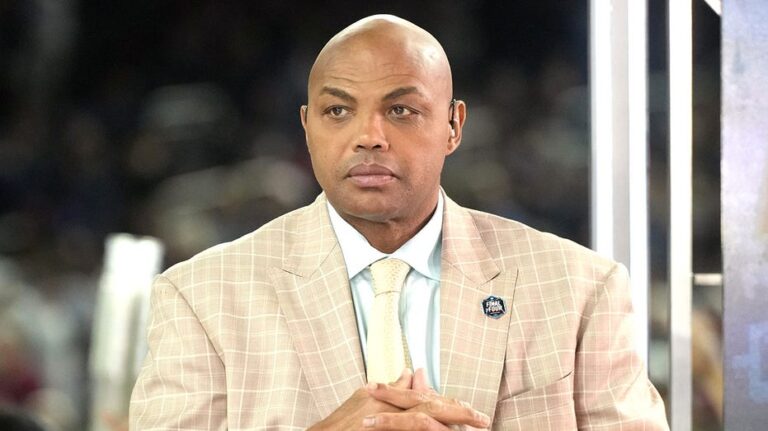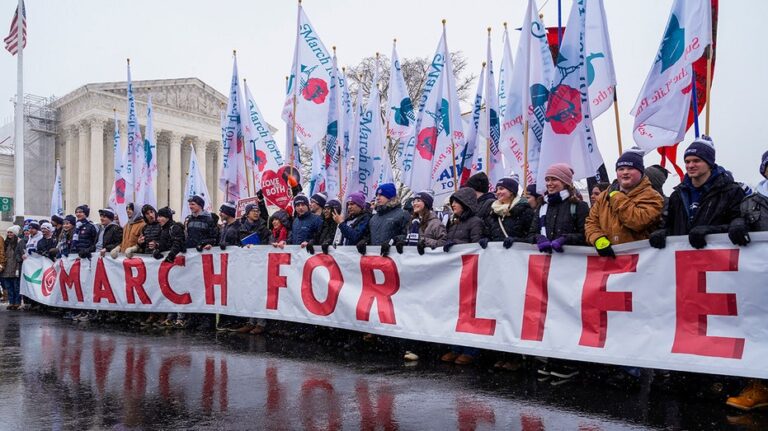
An attorney for a Wisconsin prosecutor made the case to reinstate a 175-year-old abortion ban to the state’s Supreme Court on Monday.
His argument comes more than two years after the U.S. Supreme Court overturned Roe v. Wade, which effectively ended recognition of a constitutional right to abortion and gave states the power to allow, limit or ban the practice altogether.
In December, Sheboygan County District Attorney Joel Urmanski appealed a Dane County judge’s ruling that said there is no state ban on abortions, invalidating the 175-year-old abortion ban.
While a ruling is not expected for weeks, abortion advocates are almost certain to win the case, since liberal justices control the court.
WI REPUBLICAN PROSECUTOR PLANS APPEAL IN STATE ABORTION CASE
The Associated Press reported that one of the judges, Janet Protasiewicz, made remarks on the campaign trail that she supports abortion rights.
The hearing on Monday lasted about two hours, though no decision was made.
Rebecca Dallet, another liberal justice, told Matthew Thome, the attorney representing Urmanski, that the ban was passed in 1849 by white men who had all the power.
Liberal Justice Jill Karofsky pointed out to Thome that the 1849 law does not provide exceptions for rape or incest, and reactivating the ban could result in doctors not providing medical care.
WISCONSIN DISTRICT ATTORNEY APPEALS COURT DECISION ALLOWING ABORTIONS TO RESUME WITHIN STATE
Thome told the court on Monday that he was not arguing about the implications of reinstating the ban on abortion. Instead, he maintained that the legal theory of new laws repealing old ones is shaky.
He also argued that the ban and newer restrictions on abortion can overlap.
Thome pleaded to the justices that a ruling that the 1985 law effectively repealed the ban would be “anti-democratic.”
“It’s a statute this Legislature has not repealed, and you’re saying, no, you actually repealed it,” he said.
Justice Dallet told Thome that disregarding laws passed over the last 40 years to go back to 1849 would be undemocratic.
The state’s ban on abortion from 1849 held up until 1973, when the U.S. Supreme Court recognized the right to abortion nationwide in the landmark Roe v. Wade case. But when the U.S. Supreme Court ruled in favor of the Dobbs decision and overturned Roe v. Wade on June 24, 2022, states regained the power to decide their own laws on abortion.
PLANNED PARENTHOOD OF WISCONSIN TO RESUME ABORTIONS IN SHEBOYGAN BEFORE YEAR’S END
Democratic Attorney General Josh Kaul filed a lawsuit challenging the law in 2022. He argued that a 1985 Wisconsin law that allows abortions before a baby can survive outside the womb supersedes the ban.
Urmanski contends that the ban was never repealed, and it can co-exist with the 1985 law since it did not legalize abortion at any point.
He also argues that other modern-day abortion restrictions do not legalize the practice.
Dane County Circuit Judge Diane Schlipper ruled last year that the ban outlaws feticide, or the killing of a fetus without the mother’s consent, but not consensual abortions.
Because of the ruling, Planned Parenthood was able to resume offering abortions in Wisconsin after halting procedures when Roe was overturned.
The Associated Press contributed to this report.
An attorney for a Wisconsin prosecutor made the case to reinstate a 175-year-old abortion ban to the state’s Supreme Court on Monday.
His argument comes more than two years after the U.S. Supreme Court overturned Roe v. Wade, which effectively ended recognition of a constitutional right to abortion and gave states the power to allow, limit or ban the practice altogether.
In December, Sheboygan County District Attorney Joel Urmanski appealed a Dane County judge’s ruling that said there is no state ban on abortions, invalidating the 175-year-old abortion ban.
While a ruling is not expected for weeks, abortion advocates are almost certain to win the case, since liberal justices control the court.
WI REPUBLICAN PROSECUTOR PLANS APPEAL IN STATE ABORTION CASE
The Associated Press reported that one of the judges, Janet Protasiewicz, made remarks on the campaign trail that she supports abortion rights.
The hearing on Monday lasted about two hours, though no decision was made.
Rebecca Dallet, another liberal justice, told Matthew Thome, the attorney representing Urmanski, that the ban was passed in 1849 by white men who had all the power.
Liberal Justice Jill Karofsky pointed out to Thome that the 1849 law does not provide exceptions for rape or incest, and reactivating the ban could result in doctors not providing medical care.
WISCONSIN DISTRICT ATTORNEY APPEALS COURT DECISION ALLOWING ABORTIONS TO RESUME WITHIN STATE
Thome told the court on Monday that he was not arguing about the implications of reinstating the ban on abortion. Instead, he maintained that the legal theory of new laws repealing old ones is shaky.
He also argued that the ban and newer restrictions on abortion can overlap.
Thome pleaded to the justices that a ruling that the 1985 law effectively repealed the ban would be “anti-democratic.”
“It’s a statute this Legislature has not repealed, and you’re saying, no, you actually repealed it,” he said.
Justice Dallet told Thome that disregarding laws passed over the last 40 years to go back to 1849 would be undemocratic.
The state’s ban on abortion from 1849 held up until 1973, when the U.S. Supreme Court recognized the right to abortion nationwide in the landmark Roe v. Wade case. But when the U.S. Supreme Court ruled in favor of the Dobbs decision and overturned Roe v. Wade on June 24, 2022, states regained the power to decide their own laws on abortion.
PLANNED PARENTHOOD OF WISCONSIN TO RESUME ABORTIONS IN SHEBOYGAN BEFORE YEAR’S END
Democratic Attorney General Josh Kaul filed a lawsuit challenging the law in 2022. He argued that a 1985 Wisconsin law that allows abortions before a baby can survive outside the womb supersedes the ban.
Urmanski contends that the ban was never repealed, and it can co-exist with the 1985 law since it did not legalize abortion at any point.
He also argues that other modern-day abortion restrictions do not legalize the practice.
Dane County Circuit Judge Diane Schlipper ruled last year that the ban outlaws feticide, or the killing of a fetus without the mother’s consent, but not consensual abortions.
Because of the ruling, Planned Parenthood was able to resume offering abortions in Wisconsin after halting procedures when Roe was overturned.
The Associated Press contributed to this report.



